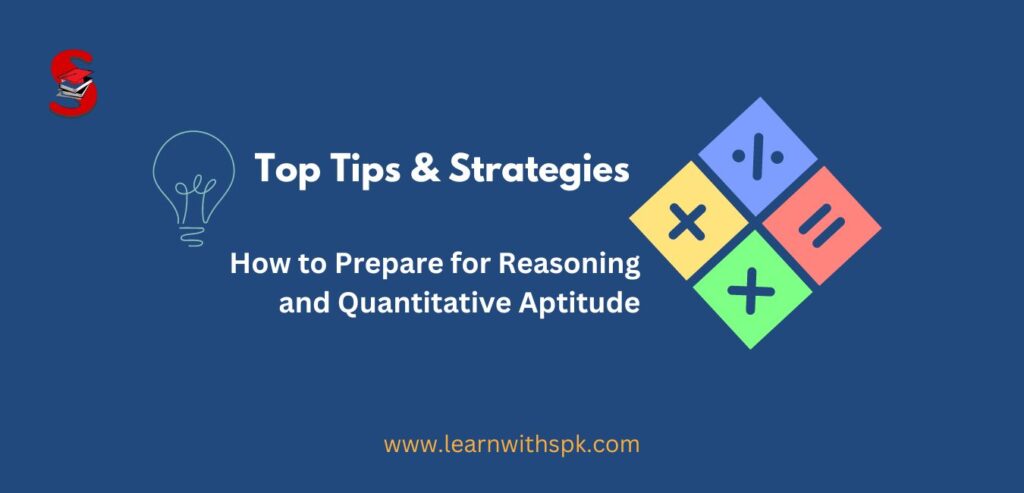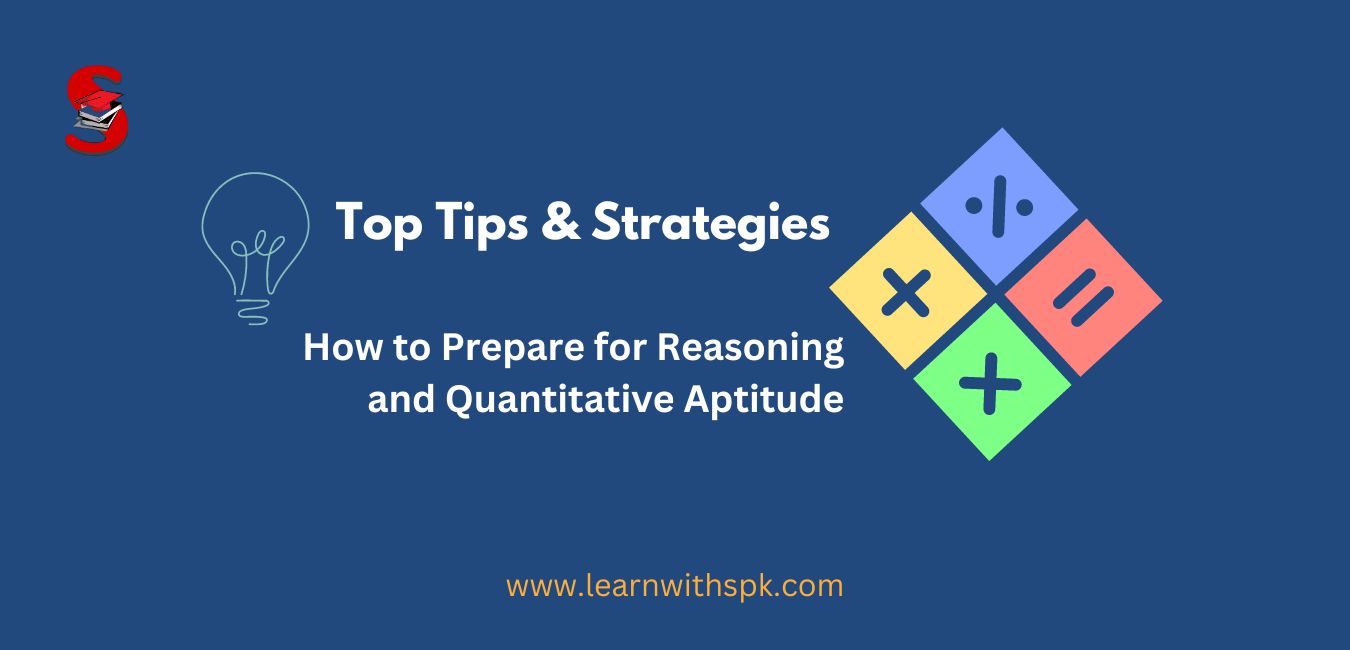Preparing for reasoning and quantitative aptitude tests can be a daunting task, but with the right strategies, it can be a rewarding and empowering experience. Whether you’re gearing up for a competitive exam or simply looking to enhance your problem-solving skills, having a well-thought-out preparation plan is key to success.
In this article, we will explore effective and engaging strategies to help you tackle the challenges of reasoning and quantitative aptitude tests with confidence. From tips on time management to techniques for mastering complex problem-solving, we’ve got you covered. Get ready to unlock your full potential and approach these tests with a winning mindset.

Preparation Strategy and Tips for Reasoning Ability and Quantitative Aptitude
Both reasoning and quantitative aptitude are important for Bank Exams like SBI, IBPS, and SSC as well as any competitive exams. These topic helps you to secure good marks in these exams. So, we need to prepare well for this part. Here We will discuss a few strategies and tips for preparing Reasoning and Quantitative Aptitude for SSC GD and bank Exams like IBPS, SBI, etc.
Tips to Prepare for Reasoning Ability for SSC GD, IBPS, SBI
In the beginning, we have to understand what Reasoning is.
What is Reasoning?
Reasoning is a technique or a science of thinking logically and broadly because it enhances the power of thinking as well as interpreting a particular situation. In other words, we can say that it is a medium for measuring the ability to think logically about a situation. Hence, Reasoning is the set of processes that enables us to go beyond the information given.
Reasoning ability is something that your mind thinks about why, what, and how. It is the ability to take inputs from 5 sensory organs process the data and give the relative solution. The only way to test reasoning ability is by taking part in problem-solving and checking the time taken for the solving problem. Less time consumed while solving a problem can lead you to a higher ranking.
Importance of Reasoning
Reasoning is necessary to be able to make decisions based on the factual nature of the situation and not just an emotional response. But in competitive examinations, Reasoning plays a vital role in enhancing the marks because of its handy nature. The importance of this section becomes valuable when the questions of reasoning belong to a high level. You are advised to focus on such type of question because it is easy and can give you maximum marks. You must practice regularly so that your thinking level becomes stronger which can lead you to get maximum marks.
You can also read our article on How to Prepare for a Job Interview?
Types of Reasoning Ability Questions
The Reasoning Ability questions can be divided into four types. These are-
- Logical Reasoning
- Analytical Reasoning
- General Mental Ability
- Other sub-topics
Logical reasoning: In this section ability to think logically is required. In this section, Statement and Conclusion, Statement and arguments, Statement and assumptions, Statement and cause and effect are included.
Analytical Reasoning: The level of questions requires an extra approach to deal with. Input-Output, Puzzle, Inequality, Syllogism, and Decision Making are included.
General Mental Ability: Basic questions are formulated which can be easily operated with the help of our daily activities. Coding-Decoding, Order Sequence, Blood Relations, and Sitting Arrangement are included.
Other sub-topics: The easiest chapter of reasoning is included.
Preparation Strategies and Tips for Quantitative Aptitude for SSC GD, SBI, IBPS
The questions asked in the quantitative aptitude section are very basic requiring a thorough knowledge of basic mathematics from class V to class X. If you are preparing for the first time, the NCERT books of mathematics may prove a boon to you. To solve the question of quantitative aptitude very efficiently and accurately you must know certain things. Here are some important things you should know:
- The basic rules applied in each chapter.
- All the formulas and their application to solve the sums.
- You must know the traditional method of solving a sum or equations and after that, you can practice the shortcut tricks to solve the same.
- Basic calculation and approximation (or rounding off) concepts are highly needed as sometimes they can drive you straight to the correct answer.
- The concept of percentage is very important and it is the core of the entire Arithmetic. You must know it properly.
How to Solve Data Interpretation and Data Analysis Questions Efficiently
Now, let’s come to solving another type of question. These are Data Interpretation and Data Analysis. To solve the sum of data interpretation and data analysis, you must first know the following things-
- The type and nature of the graph involved in a certain problem as it can give a hint about the right answer.
- You must know the concept of ratio and proportion.
- You must Know the concept of average and percentage.
The whole question regarding data interpretation and data analysis hinges upon calculating the average, percentage, and ratio of variables. As you calculation consumed times. Doing fast and accurate calculations can play a big role in your examination. To improve your calculation speed you need to practice more and more.
